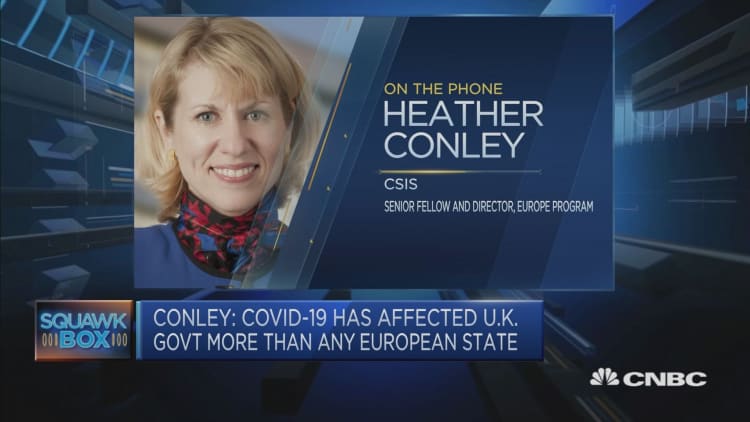U.K. Prime Minister Boris Johnson is currently being treated in intensive care for the coronavirus, leaving him unable to work.
Johnson was the first world leader to contract the highly-infectious virus but unlike some countries Britain does not have a deputy leader in place to take over power immediately if the prime minister is incapacitated.
Instead, the prime minister asked Dominic Raab, who is the foreign secretary and the first secretary of state, to "deputize" for him.
This includes performing responsibilities such as chairing cabinet meetings of senior ministers on how the government is tackling the coronavirus.
A Downing Street spokesman said the government and cabinet were working together to implement the plan to respond to the COVID-19 crisis, which was set out by the prime minister, and that they were "bound by mutual obligation to carry it out."
Cabinet minister Michael Gove said in a radio interview with the BBC Tuesday, that it would be a "cabinet decision to change things," such as the current lockdown measures.
He said that in deputizing, the secretary of state made sure that decisions that are taken in meetings were followed through, later adding that the "prime minister will always be the prime minister" and that there was a "great team spirit in government."
The lack of clarity over acting leadership in the U.K. is because Britain has no written constitution outlining fixed procedures for such circumstances.
It was announced Johnson had tested positive for the coronavirus on March 27. He was first admitted to St. Thomas' hospital in London on Sunday for tests due to persistent symptoms. He was then taken to its intensive care unit on Monday evening after his condition deteriorated.
However, a number 10 spokesman said Wednesday that the prime minister was "clinically stable" and was responding to treatment after a second night in intensive care.



